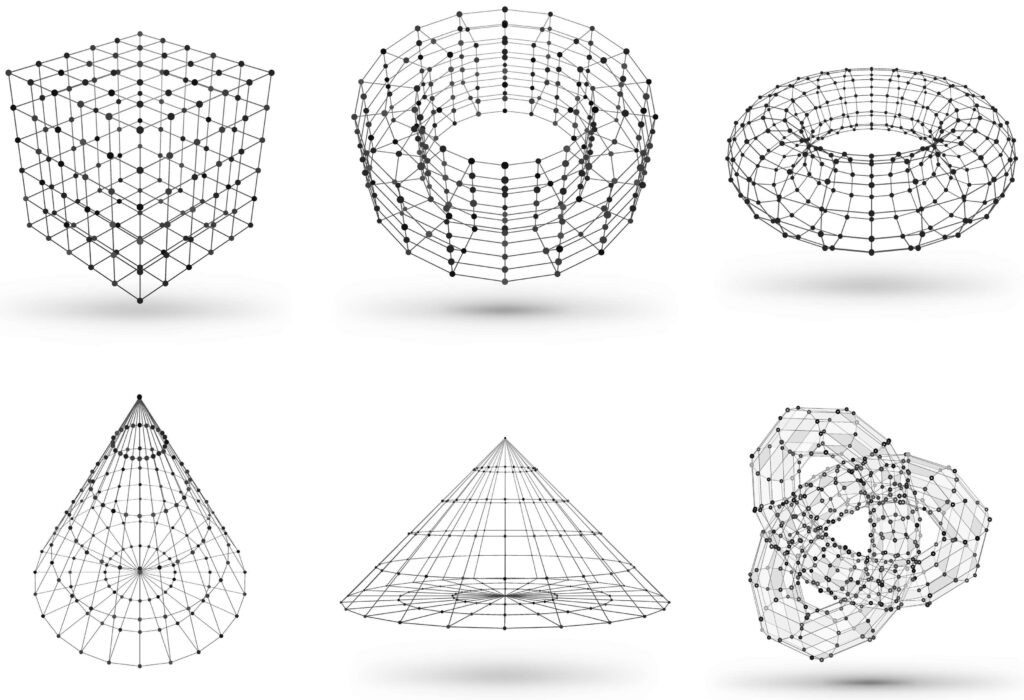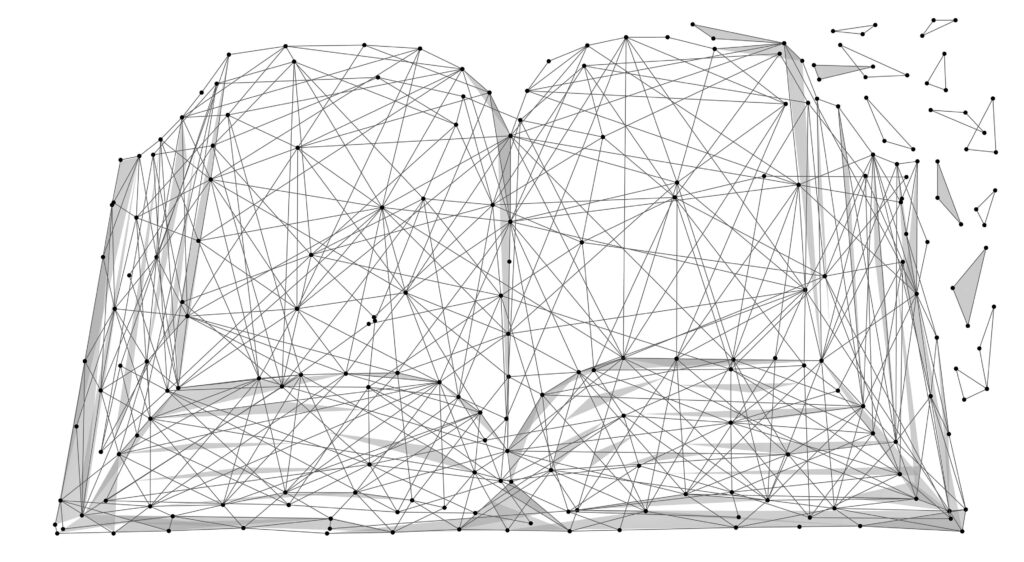Research areas and expertise
The RCAI researches diverse facets of artificial intelligence.
When developing and implementing AI concepts, the RCAI follows a holistic approach and combines various AI technologies with the domain knowledge of its laboratories as well as with ethical, social and legal considerations.
Computer Vision

Image Classification
Classification of a wide range of image data
Prof. Dr. Jürgen Frikel
Prof. Dr. Hermann Ketterl
Prof. Dr. Lars Krenkel
Prof. Dr. Christoph Palm
Prof. Dr. Johannes Reschke
Prof. Dr. Filippo Riccio
Prof. Dr. Armin Sehr
Prof. Dr. Martin Weiß
Image Segmentation
Segmentation of a wide range of image data
Prof. Dr. Jürgen Frikel
Prof. Dr. Hermann Ketterl
Prof. Dr. Tobias Laumer
Prof. Dr. Christoph Palm
Prof. Dr. Filippo Riccio
Prof. Dr. Simone Weikl
Edge AI
Miniaturisation and integration of machine learning methods for image evaluation in sensor nodes
Prof. Dr. Florian Aschauer
Prof. Dr. Rudolf Bierl
Prof. Dr. Matthias Ehrnsperger
Prof. Dr. Johannes Reschke
Prof. Dr. Stephan Scheele
Prof. Dr. Armin Sehr
Object Detection
Detection and identification of objects in various scenarios
Prof. Dr. Rudolf Bierl
Prof. Dr. Jürgen Frikel
Prof. Dr. Carsten Kern
Prof. Dr. Hermann Ketterl
Prof. Dr. Filippo Riccio
Prof. Dr. Simone Weikl
Prof. Dr. Martin Weiß
Natural Language Processing & Computer Audition

Audio processing
Machine learning for understanding audio signals and three-dimensional audio playback via headphones
Multimodal (Dialogue) Systems
Spoken language dialogue systems and multimodal language processing
Large Language Models
Text generation, translation, answering questions and imparting knowledge
Prof. Dr. Timo Baumann
Prof. Dr. Jürgen Frikel
Prof. Dr. Markus Bresinsky
Prof. Dr. Stephan Scheele
Prof. Dr. Martin Weiß
Sentiment Analysis
Evaluation of text and language in terms of the emotions they express
Signal & Time Series Analysis

Acoustic Localisation
Localisation of objects using acoustic signals
Prof. Stefan Galka
Prof. Dr. Johannes Reschke
Prof. Dr. Armin Sehr
Biosignal Processing
Analysing biological measurements and brain computer interfaces
Prof. Dr. Rudolf Bierl
Prof. Dr. Sebastian Dendorfer
Prof. Dr. Jürgen Frikel
Prof. Dr. Markus Goldhacker
Prof. Dr. Lars Krenkel
Edge AI
Hardware-accelerated data evaluation in the sensor node
Prof. Dr. Florian Aschauer
Prof. Dr. Rudolf Bierl
Prof. Dr. Matthias Ehrnsperger
Prof. Dr. Jürgen Mottok
Prof. Dr. Johannes Reschke
Prof. Dr. Stephan Scheele
Prof. Dr. Armin Sehr
Monitoring
Monitoring of processes and data streams for anomaly detection
Prof. Dr. Rudolf Bierl
Prof. Dr. Jürgen Frikel
Prof. Dr. Markus Goldhacker
Prof. Dr. Jürgen Mottok
Prof. Dr. Filippo Riccio
Prof. Dr. Stephan Scheele
Prof. Dr. Armin Sehr
Prof. Dr. Simone Weikl
Predictive Maintenance
Early detection of faults and defects based on signals from the production environment
Prof. Dr. Markus Goldhacker
Prof. Dr. Armin Sehr
Prof. Dr. Martin Weiß
Simulation and Prediction

Digital Models of the Human Body
Models and simulations for analysing the course of illness, surgery and rehabilitation
Prof. Dr. Sebastian Dendorfer
Prof. Dr. Lars Krenkel
Prof. Dr. Christoph Palm
Digital Twins
Digital models of processes in production, buildings and infrastructure
Prof. Dr. Oliver Brückl
Prof. Dr. Jan Dünnweber
Prof. Stefan Galka
Prof. Dr. Mathias Obergrießer
Prof. Dr. Oliver Steffens
Prof. Dr. Marcus Wagner
Prof. Dr. Simone Weikl
Intrusion Detection
Detection of cyber attacks, e.g. through anomaly detection
Prediction of Production Results
Feasibility assessment of additively manufactured components
Scenario Methods
Forecasting complex scenarios, e.g. for crisis management
Behavioural Analyses in the Energy Sector
Analysis of usage behaviour, prediction of loads and active and reactive power
Prof. Dr. Oliver Brückl
Prof. Dr. Jan Dünnweber
Prof. Dr. Oliver Steffens
Prof. Dr. Karsten Weber
Robotics, Planning and Control

Industrial Optimisation
Planung und Optimierung von Fertigungsprozessen mit Process Mining und Reinforcement Learning
Prof. Stefan Galka
Prof. Dr. Stephan Scheele
Prof. Dr. Wolfgang Mauerer
Planning and Optimisation for Infrastructure and Buildings
Optimised, intelligent electricity management and building planning
Prof. Dr. Mathias Obergrießer
Prof. Dr. Oliver Steffens
Prof. Dr. Simone Weikl
Generation

Data Augmentation
Methods for the synthetic expansion of datasets using generative neural networks
Prof. Dr. Jürgen Frikel
Prof. Dr. Christoph Palm
Prof. Dr. Marcus Wagner
Detection of AI-Generated Content
AI to recognise artificially generated content, e.g. in social media
Cross-Cutting Aspects

Deep Learning
Deep Neural Networks for a wide range of data types and applications
Prof. Dr. Florian Aschauer
Prof. Dr. Timo Baumann
Prof. Dr. Rudolf Bierl
Prof. Dr. Sebastian Dendorfer
Prof. Dr. Jan Dünnweber
Prof. Dr. Matthias Ehrnsperger
Prof. Dr. Thomas Falter
Prof. Dr. Markus Goldhacker
Prof. Dr. Jürgen Frikel
Prof. Dr. Hermann Ketterl
Prof. Dr. Carsten Kern
Prof. Dr. Lars Krenkel
Prof. Dr. Wolfgang Mauerer
Prof. Dr. Mathias Obergrießer
Prof. Dr. Christoph Palm
Prof. Dr. Johannes Reschke
Prof. Dr. Filippo Riccio
Prof. Dr. Stephan Scheele
Prof. Dr. Armin Sehr
Prof. Dr. Christoph Skornia
Prof. Dr. Marcus Wagner
Prof. Dr. Simone Weikl
Prof. Dr. Martin Weiß
Explainability & Causality
Explainable and interpretable methods of artificial intelligence
Prof. Dr. Markus Bresinsky
Prof. Dr. Sebastian Dendorfer
Prof. Dr. Thomas Falter
Prof. Dr. Jürgen Frikel
Prof. Dr. Carsten Kern
Prof. Dr. Lars Krenkel
Prof. Dr. Wolfgang Mauerer
Prof. Dr. Jürgen Mottok
Prof. Dr. Christoph Palm
Prof. Dr. Stephan Scheele
Sustainability
Sustainable AI and AI to increase sustainability in a wide range of disciplines
Prof. Dr. Florian Aschauer
Prof. Dr. Rudolf Bierl
Prof. Dr. Oliver Brückl
Prof. Dr. Jan Dünnweber
Prof. Dr. Mathias Ehrnsperger
Prof. Dr. Thomas Falter
Prof. Dr. Jürgen Frikel
Prof. Stefan Galka
Prof. Dr. Markus Goldhacker
Prof. Dr. Sonja Haug
Prof. Dr. Hermann Ketterl
Prof. Dr. Thomas Kriza
Prof. Dr. Tobias Laumer
Prof. Dr. Wolfgang Mauerer
Prof. Dr. Jürgen Mottok
Prof. Dr. Mathias Obergrießer
Prof. Dr. Johannes Reschke
Prof. Dr. Filippo Riccio
Prof. Dr. Stephan Scheele
Prof. Dr. Christoph Skornia
Prof. Dr. Oliver Steffens
Prof. Dr. Marcus Wagner
Prof. Dr. Karsten Weber
Prof. Dr. Simone Weikl
Prof. Dr. Martin Weiß
Mathematical Foundations
Mathematical Foundations of Neural Networks
Physics-Informed AI
Combination of artificial intelligence and known physical models
Quantum AI
Quantum machine learning and optimisation algorithms for quantum computers
Software Engineering
Increasing and safeguarding software and system quality of and through AI
Economic Aspects

Promotion of Start-ups
Spin-offs and start-ups in the field of artificial intelligence
IT Management
Management of information technologies such as cloud computing in corporate use
Human Resources and Accounting
Possible applications of AI, taking into account special regulatory requirements
Knowledge Transfer
Best practices for knowledge transfer in industry and society
Prof. Dr. Tobias Laumer
Prof. Dr. Wolfgang Mauerer
Prof. Dr. Jürgen Mottok
Ethical, Legal and Social Aspects

Empirical Social Research
Investigation of social aspects of artificial intelligence using empirical social research methods
Technology Impact
Impact of artificial intelligence on society, mobility, energy, health, information and communication technology
Applied Ethics
Ethical aspects and framework conditions for the use of artificial intelligence